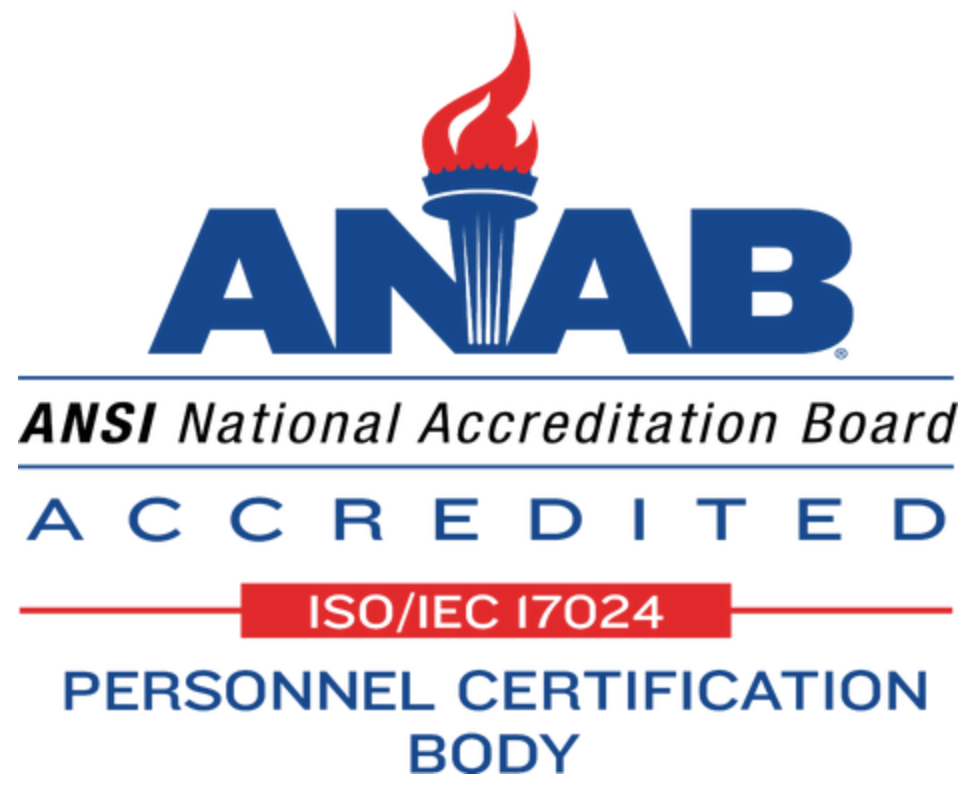Our Certified Investment Management Analyst® (CIMA®) and Certified Private Wealth Advisor® (CPWA®) certifications are accredited by the ANSI National Accreditation Board (ANAB)—the largest, third-party, multi-disciplinary accreditation body in the western hemisphere—under an international standard for personnel certifiers (ISO/IEC 17024). This independent assessment validates that these two certifications teach the skills and knowledge deemed critical to effectively work in the investments and wealth management industry—and which can help you to better address the ever-evolving needs of HNW and UHNW clients.

Investments & Wealth Institute ANAB Accreditation

Initially accredited in 2011, the CIMA® certification was the first financial services credential in the United States accredited by ANAB. In 2016 and again in 2021, CIMA® certification was re-accredited as a global certification, with a global body of knowledge and skills for investment advisors. CPWA® earned accreditation in 2022. The CIMA® and CPWA® certifications have been accredited as quality credentials that protect and enhance their value to certified professionals and provide reassurance for regulators, compliance departments, and clients. ANAB accreditation highlights the advantages of bona fide certifications:
The certification process is valid, reliable, fair, transparent and objective.
CIMA® certification consistently distinguishes those who meet a level of competency and skills as an investment advisor or consultant from those who don’t.
CPWA® certification consistently distinguishes those who meet a global standard of competency and skills in private wealth management from those who don’t.
The program is supported by an organization with sound management systems.
Individual Standards
To meet the rigorous ANAB ISO/IEC 17024 accreditation standard for personnel certifications, the Institute demonstrated its adherence to nearly 120 individual standards, including those that can be summarized in the following broad categories:
Credibility: ANSI/ISO/IEC 17024 is assessment-based, which means that certification may only be conferred upon those candidates successfully completing a competency-based certification examination. The certification examination must be fair, valid and reliable. The examination must be fair and cannot discriminate between persons based upon non-competency related factors such as race, age, gender or ethnicity. A valid examination correctly measures whether an individual has the necessary competencies for the job. Validity is an indicator to establish that the process measures what is intended to measure. Reliability demonstrates that the examination measures a person’s abilities in a consistent manner.
Impartiality: The certification body must demonstrate that its structure, policies, and procedures ensure impartiality and objectivity and that it manages conflict of interest arising from certification activities.
Independence: The certification functions must be independent of training to ensure that confidentiality, information security and impartiality are not compromised.
Transparency: The certification body is required to have an active complaints process to resolve complaints against its activities as well as complaints against individuals that it has certified.
Accountability: The certification body must have due process for taking away a credential for unethical or incompetent behavior.
Balanced representation of stakeholders: The standard requires that the certification body involve key stakeholders in making certification related decisions. Additionally, as stated above in Section A, subject matter experts (SMEs) must be involved in creating the certification scheme requirement based on a valid job or practice analysis, the foundation upon which a fair, valid and reliable examination is constructed.
Continuous Quality Improvement: The certification body must develop a management system for continual improvement of its program.
Other requirements: The standard is extremely comprehensive and covers all aspects of certification including examination and data security, recertification, resource requirements, confidentiality, competence of personnel involved with certification activities, financial requirements and use of certification and logo marks.
To maintain the accrediation, ANAB requires more ongoing rigor by the credentialing body than other standards. ANAB requires annual surveillance applications, coupled with annual audits by assessors and reapplication every five years.
COMMITMENT TO EXCELLENCE
During the past several years as Investments & Wealth Institute anticipated applying for accreditation, our volunteer policymakers set transparent standards for registering education providers, modified the governance structure to address potential conflicts of interest, and separated the education program from the actual certification function. Attainment of ANAB accreditation grows and protects the integrity of both the CIMA® and CPWA® certification. Investments & Wealth Institute is positioned at the forefront of financial services credentialing bodies, and the value of CIMA® and CPWA® certification is undeniably greater. Accreditation protects the value of CIMA® and CPWA® certification from regulatory trends in financial services, recognizes the quality of Investments & Wealth Institute’s organizational and certification processes, more effectively positions CIMA® and CPWA® certification for international growth. Fewer than 5% of financial services credentialing programs meet accreditation standards and few create absolute separation between examination and education. Certificants, clients, employers, and regulators can continue to be assured that the CIMA® and CPWA® marks are granted and administered under rigorous guidelines.
